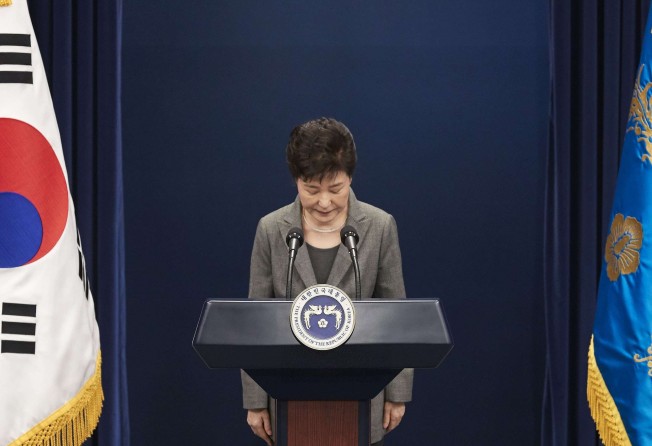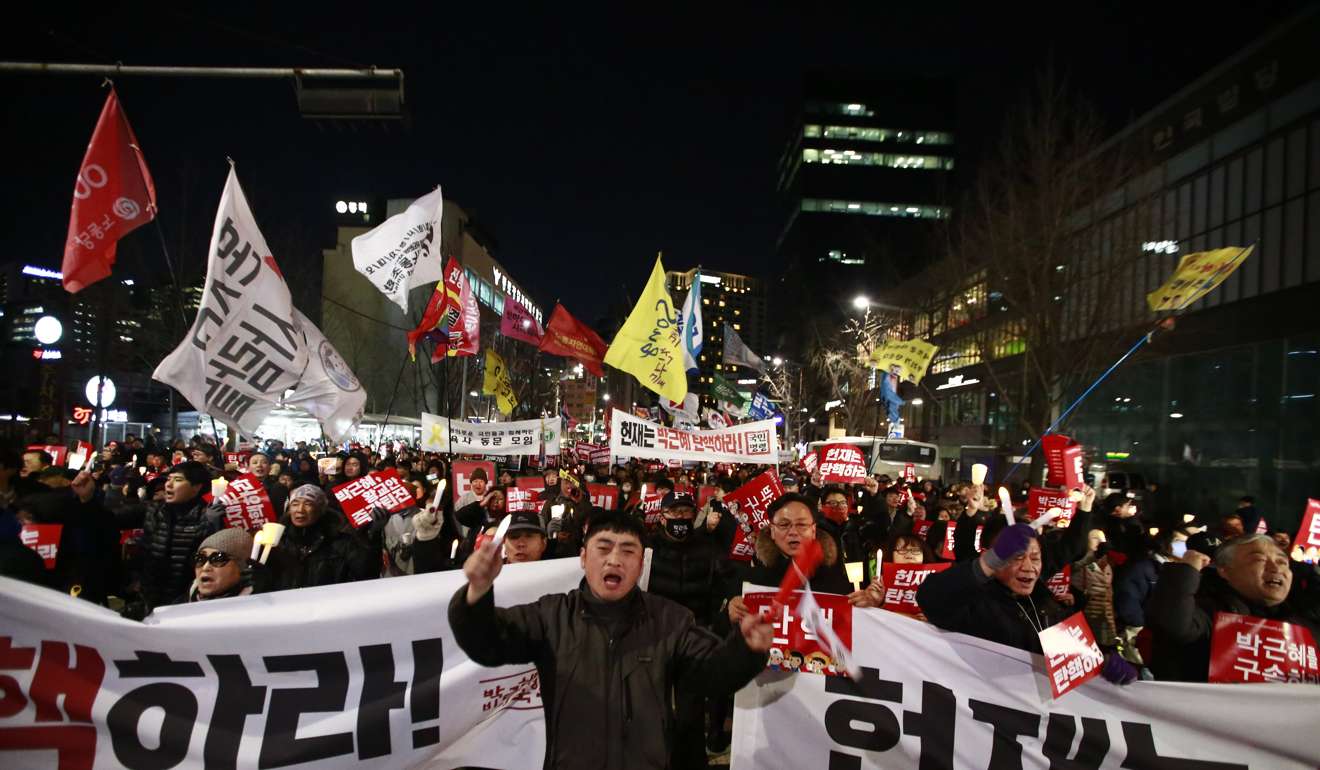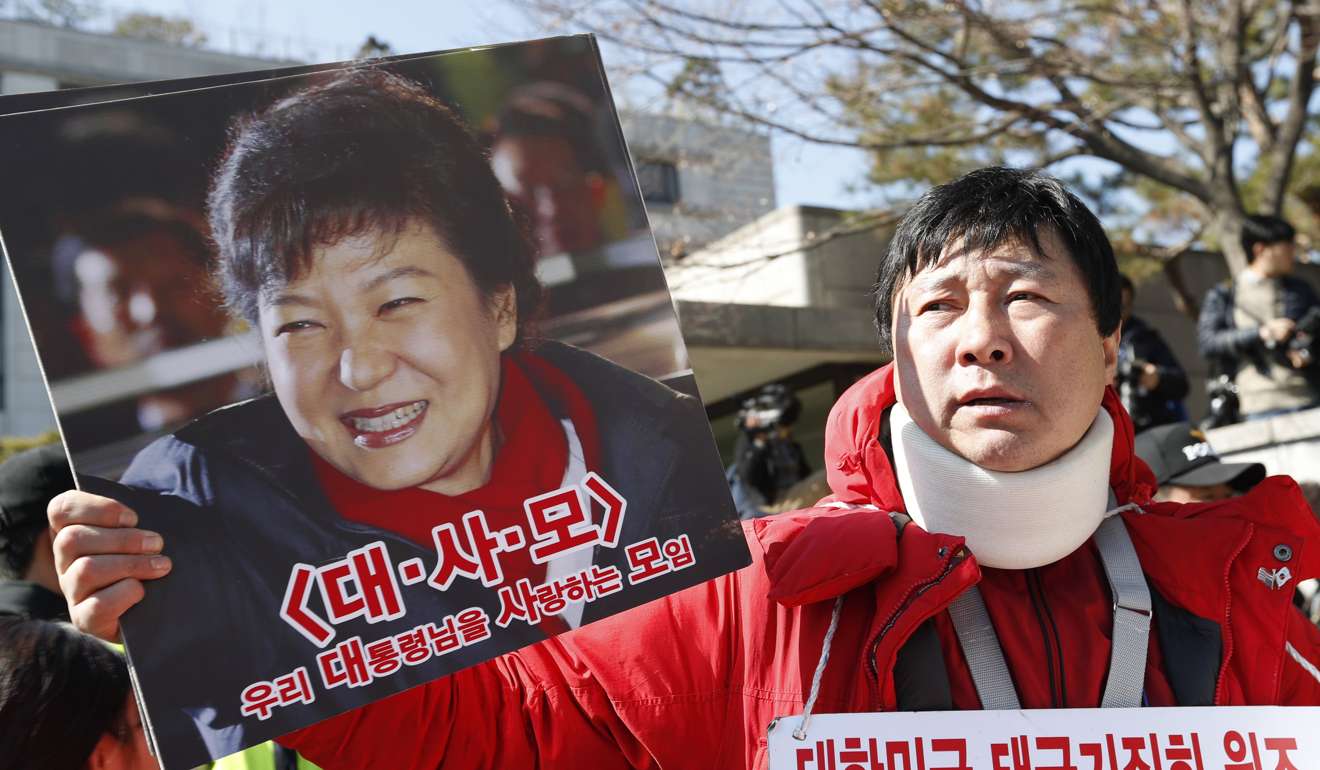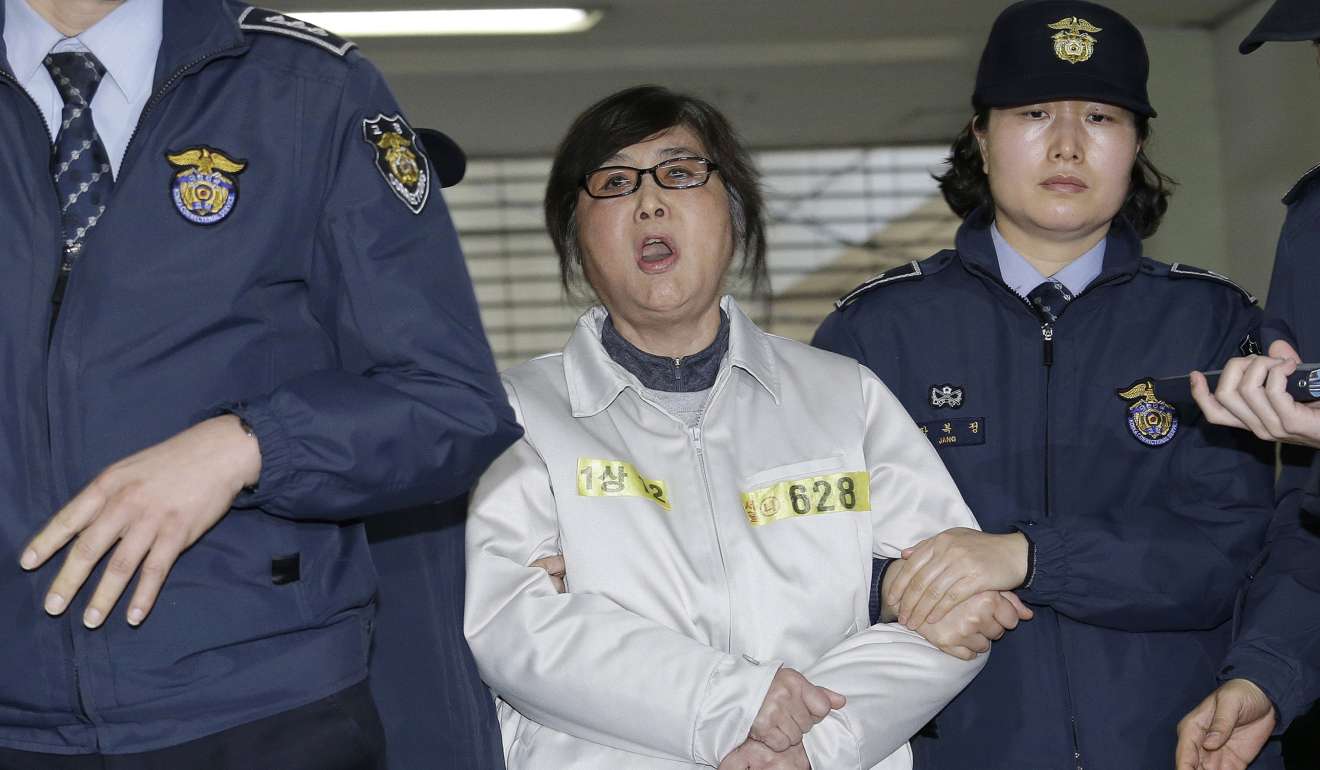South Korean President Park Geun-hye dismissed by constitutional court in unanimous decision
The scandal has preoccupied the country for months, at a time when North Korea is pushing ahead with its missile programme and tension is brewing with China over a US missile-defence system being deployed

South Korea’s constitutional court has ruled to formally end impeached President Park Geun-hye’s rule.
The historic, unanimous verdict by the eight-judge panel means Park is South Korea’s first democratically elected leader to be ousted early from office since democracy came to the country in the late 1980s. South Korea must now hold an election within two months to choose her successor.
Watch: Park Geun-hye removed from office
Park concealed completely Choi’s meddling in state affairs and denied it whenever suspicions over the act emerged
Park’s action had “seriously impaired the spirit of ... democracy and the rule of law,” said constitutional court chief justice Lee Jung-mi. “President Park Geun-hye... has been dismissed.”
“The president has to use her power based on the constitution and the laws and have the details of her work shown transparently so that people can evaluate her works,” Lee said.
“But Park concealed completely Choi’s meddling in state affairs and denied it whenever suspicions over the act emerged and even criticised those who raised the suspicions.
“Judging from [Park’s] words and deeds, law-breaking activities have been repeated and her determination to abide by the Constitution has not been shown.
“In the end, the president’s unconstitutional and law-breaking activities have betrayed the people’s trust and also have been serious activities that can never be tolerated in the context of protecting the Constitution.”
Park, the daughter of a late army-backed dictator, became South Korea’s first female president when she was elected in 2012, securing the highest vote share of any candidate in the democratic era.
But her aloof style and a series of controversies, coupled with mounting economic and social frustrations, saw her ratings plunge and millions take to the streets to demand her removal.

She was impeached by parliament in December on charges including bribery and abuse of power.
Park, 65, has been accused of colluding with a friend, Choi Soon-sil, and a former presidential aide, both of whom have been on trial, to pressure big businesses to donate to two foundations set up to back her policy initiatives.
She is also accused of soliciting bribes from the head of the Samsung Group for government favours including the backing of a merger of two Samsung affiliates in 2015 that was seen to support the succession of control over the country’s largest chaebol conglomerate.
The scandal has preoccupied the country for months, at a time when rival North Korea is pushing ahead with its missile programme and tension is brewing with China over a US missile-defence system being deployed in South Korea.

The president has repeatedly apologised for the impact of the scandal, but rejected all allegations of wrongdoing when she submitted a written statement to the court’s last hearing in February.
“I’ve never sought private gains or abused power as president ... I plead with the court to make a wise decision,” she said at the time.
Park has been holed up in the Blue House with her power suspended since she was impeached, leaving the complex only once, to pay tribute at her parents’ graves. Her confidante, Choi Soon-sil, the woman at the centre of the scandal, is already on trial.
A heavy police presence was deployed in the streets around the building, where thousands of supporters and opponents gathered amid rising tensions.

Loudspeakers at an anti-impeachment demonstration blared out military songs and protesters chanted slogans, many waving South Korean and US flags.
“I am ready to shed my blood on the road to protect free democracy,” said Bae Soo-rok, 58, a retired soldier wearing a South Korean marine uniform. “President Park is being sacrificed at something like a kangaroo court.”
Anti-Park demonstrators watching a giant screen set up on the street chanted, “Park Geun-hye’s impeachment will be a victory for all!”
Many participants at anti-Park rallies had said they would stage a “revolution” if the court rejected Park’s impeachment.
“If Park accepts the ruling and soothes those who opposed her impeachment, things will be quiet,” said Yoon Tae-ryong, a political scientist at Seoul’s Konkuk University. “But looking at what she’s done so far, I think that might be wishful thinking.”
Watch: South Koreans celebrate Park’s impeachment in December 2016
Prosecutors can now summon, question and possibly arrest Park. Her critics want to see Park appear on TV while dressed in prison garb, handcuffed and bound like others involved in the scandal. But some analysts worry that could create a backlash by conservatives.
Even after the election, imprisoning Park could still be a burden for a new government, which must pursue national unity to overcome security, economic and other problems.
Ahead of the decision, an overwhelming majority of South Koreans – around 77 per cent – supported Park’s removal in opinion polls.
The leading candidates to replace Park favour moves to break up family-run conglomerates that have dominated Asia’s fourth-biggest economy for decades.
The main opposition Democratic Party of Korea is home to several top candidates in recent polls, including front runner Moon Jae-in. The party will hold a nationwide primary over the next month to pick a nominee. Park’s Liberty Korea Party, formerly known as Saenuri, has yet to put forth a viable presidential candidate.
Reuters, Agence France-Presse, Associated Press